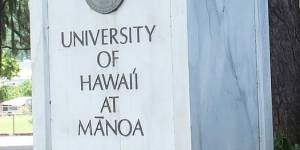I am presently completing my LLM at Coast Law and someone recently asked me about my experience. If it might be helpful to others, I am re-transcribing the question asked with my answers.
I enrolled at Coastal Law because I wanted an LLM program with core U.S. law subjects (contract, torts, criminal law, civil law, etc.) in order to assist me in taking the bar exam to allow me to practice in the USA. Since I am already a lawyer in a common-law jurisdiction, I am allowed to take the Washington State bar exam (high pass rate) but most of the students in the class at FCSL are planning to take the California or New York bar exam since they are from civil law countries.
I am one of the first students admitted into the program. I started last May and I will complete my LLM degree in April. The first four months were a bit difficult in terms of logistics (change of exam time, lecture, etc.). However, since September, we have had at least 15 students per class and it has gone very smoothly.
With respect to the questions asked:
1. OVERALL IMPRESSION ON THE COURSE: I love it and it prepares me very well for the bar exam. We are covering all the basic subjects of the MBE and the professors are great and accessible (by email or telephone). The lectures are entertaining and useful. I really like the program.
2. WHAT IS THE WORK LOAD LIKE ? DO YOU FIND IT A STRUGGLE TO KEEP UP? It is okay. The courses are 24 hours (2-credit) and usually meet three times a week for one month, except the Contract & UCC course, which was 36 hours (six weeks and 3-credit). If you miss a live lecture, the recording is online for your review.
3. IS IT TRUE THAT ASSESSMENT IS ALL EXAM BASED? i.e. VERY LITTLE HOMEWORK? Absolutely. No homework at all except reading the cases, and the exams mirror the bar exam. They are three essay questions (30 minutes each) and 20-25 multiple choice (MBE style of question). I am doing MBE practice questions prior to the exam and it helps me a lot. The last exam was on professional responsibilities and we had 60 multiple-choice questions like the MPRE exam. Very helpful when it is time to take the bar exam.
4. HOW DO YOU FIND THE LEARNING MATERIALS? The PowerPoints are useful, but the most useful for me is my own summary and outline of the legal issues.
5. HOW IS THE INTERACTION WITH THE PROFESSORS? Minimal. Few students ask questions or make comments in class. This is okay to me since participation is not part of the final grade.
6. HOW DOES THE DEGREE POSITION YOU FOR THE BAR EXAM? Honestly, very well. In order to take the bar exam, you need basic knowledge in US Law and we most study core U.S. law's courses. I find it much easier to do these courses (US core law courses) online with other LLM students than in a regular classroom setting with JD students, since I did not have to leave my job to attend the program and it is adapted and aimed specifically for the bar exam.
7. VALUE FOR MONEY OF THE PROGRAM? To be honest with you, I was not sure about the program when I started, especially since I was one of the first students. However, I am very happy with the program, the help of the professor and the assistance of Aron. As a matter of fact, I was in Jacksonville, Florida, in December and I went to visit the school and I was impressed with the campus (they have 1,600 regular JD students). I must point out that an LLM in human rights or in taxation would not have prepared me better for the bar exam than the LLM in U.S. law @ FCSL, and at $13,000 it was a good investment.
In closing, it is open to you to start the program with a few courses and determine if it is for you. I started that way and I just paid the balance of my tuition. I look forward to graduating in April and to taking my bar exam in July.
My experience at Florida Coastal School of Law - FCSL
Posted Jan 10, 2011 01:41
I am presently completing my LLM at Coast Law and someone recently asked me about my experience. If it might be helpful to others, I am re-transcribing the question asked with my answers.
I enrolled at Coastal Law because I wanted an LLM program with core U.S. law subjects (contract, torts, criminal law, civil law, etc.) in order to assist me in taking the bar exam to allow me to practice in the USA. Since I am already a lawyer in a common-law jurisdiction, I am allowed to take the Washington State bar exam (high pass rate) but most of the students in the class at FCSL are planning to take the California or New York bar exam since they are from civil law countries.
I am one of the first students admitted into the program. I started last May and I will complete my LLM degree in April. The first four months were a bit difficult in terms of logistics (change of exam time, lecture, etc.). However, since September, we have had at least 15 students per class and it has gone very smoothly.
With respect to the questions asked:
1. OVERALL IMPRESSION ON THE COURSE: I love it and it prepares me very well for the bar exam. We are covering all the basic subjects of the MBE and the professors are great and accessible (by email or telephone). The lectures are entertaining and useful. I really like the program.
2. WHAT IS THE WORK LOAD LIKE ? DO YOU FIND IT A STRUGGLE TO KEEP UP? It is okay. The courses are 24 hours (2-credit) and usually meet three times a week for one month, except the Contract & UCC course, which was 36 hours (six weeks and 3-credit). If you miss a live lecture, the recording is online for your review.
3. IS IT TRUE THAT ASSESSMENT IS ALL EXAM BASED? i.e. VERY LITTLE HOMEWORK? Absolutely. No homework at all except reading the cases, and the exams mirror the bar exam. They are three essay questions (30 minutes each) and 20-25 multiple choice (MBE style of question). I am doing MBE practice questions prior to the exam and it helps me a lot. The last exam was on professional responsibilities and we had 60 multiple-choice questions like the MPRE exam. Very helpful when it is time to take the bar exam.
4. HOW DO YOU FIND THE LEARNING MATERIALS? The PowerPoints are useful, but the most useful for me is my own summary and outline of the legal issues.
5. HOW IS THE INTERACTION WITH THE PROFESSORS? Minimal. Few students ask questions or make comments in class. This is okay to me since participation is not part of the final grade.
6. HOW DOES THE DEGREE POSITION YOU FOR THE BAR EXAM? Honestly, very well. In order to take the bar exam, you need basic knowledge in US Law and we most study core U.S. law's courses. I find it much easier to do these courses (US core law courses) online with other LLM students than in a regular classroom setting with JD students, since I did not have to leave my job to attend the program and it is adapted and aimed specifically for the bar exam.
7. VALUE FOR MONEY OF THE PROGRAM? To be honest with you, I was not sure about the program when I started, especially since I was one of the first students. However, I am very happy with the program, the help of the professor and the assistance of Aron. As a matter of fact, I was in Jacksonville, Florida, in December and I went to visit the school and I was impressed with the campus (they have 1,600 regular JD students). I must point out that an LLM in human rights or in taxation would not have prepared me better for the bar exam than the LLM in U.S. law @ FCSL, and at $13,000 it was a good investment.
In closing, it is open to you to start the program with a few courses and determine if it is for you. I started that way and I just paid the balance of my tuition. I look forward to graduating in April and to taking my bar exam in July.
I enrolled at Coastal Law because I wanted an LLM program with core U.S. law subjects (contract, torts, criminal law, civil law, etc.) in order to assist me in taking the bar exam to allow me to practice in the USA. Since I am already a lawyer in a common-law jurisdiction, I am allowed to take the Washington State bar exam (high pass rate) but most of the students in the class at FCSL are planning to take the California or New York bar exam since they are from civil law countries.
I am one of the first students admitted into the program. I started last May and I will complete my LLM degree in April. The first four months were a bit difficult in terms of logistics (change of exam time, lecture, etc.). However, since September, we have had at least 15 students per class and it has gone very smoothly.
With respect to the questions asked:
1. OVERALL IMPRESSION ON THE COURSE: I love it and it prepares me very well for the bar exam. We are covering all the basic subjects of the MBE and the professors are great and accessible (by email or telephone). The lectures are entertaining and useful. I really like the program.
2. WHAT IS THE WORK LOAD LIKE ? DO YOU FIND IT A STRUGGLE TO KEEP UP? It is okay. The courses are 24 hours (2-credit) and usually meet three times a week for one month, except the Contract & UCC course, which was 36 hours (six weeks and 3-credit). If you miss a live lecture, the recording is online for your review.
3. IS IT TRUE THAT ASSESSMENT IS ALL EXAM BASED? i.e. VERY LITTLE HOMEWORK? Absolutely. No homework at all except reading the cases, and the exams mirror the bar exam. They are three essay questions (30 minutes each) and 20-25 multiple choice (MBE style of question). I am doing MBE practice questions prior to the exam and it helps me a lot. The last exam was on professional responsibilities and we had 60 multiple-choice questions like the MPRE exam. Very helpful when it is time to take the bar exam.
4. HOW DO YOU FIND THE LEARNING MATERIALS? The PowerPoints are useful, but the most useful for me is my own summary and outline of the legal issues.
5. HOW IS THE INTERACTION WITH THE PROFESSORS? Minimal. Few students ask questions or make comments in class. This is okay to me since participation is not part of the final grade.
6. HOW DOES THE DEGREE POSITION YOU FOR THE BAR EXAM? Honestly, very well. In order to take the bar exam, you need basic knowledge in US Law and we most study core U.S. law's courses. I find it much easier to do these courses (US core law courses) online with other LLM students than in a regular classroom setting with JD students, since I did not have to leave my job to attend the program and it is adapted and aimed specifically for the bar exam.
7. VALUE FOR MONEY OF THE PROGRAM? To be honest with you, I was not sure about the program when I started, especially since I was one of the first students. However, I am very happy with the program, the help of the professor and the assistance of Aron. As a matter of fact, I was in Jacksonville, Florida, in December and I went to visit the school and I was impressed with the campus (they have 1,600 regular JD students). I must point out that an LLM in human rights or in taxation would not have prepared me better for the bar exam than the LLM in U.S. law @ FCSL, and at $13,000 it was a good investment.
In closing, it is open to you to start the program with a few courses and determine if it is for you. I started that way and I just paid the balance of my tuition. I look forward to graduating in April and to taking my bar exam in July.
Related Law Schools
Jacksonville, Florida
22 Followers
8 Discussions
Hot Discussions
-
Stanford 2024-2025
Nov 07, 2024 35,065 117 -
NUS LLM 2024-25 Cohort
Oct 25, 2024 5,855 34 -
MIDS - 2024-25
Nov 15 12:52 AM 1,836 16 -
Harvard LLM 2025-2026
16 hours ago 1,657 7 -
Indian Tribes as US Jurisdictions of law attorney admission?
Nov 08, 2024 765 6 -
LL.M. Scholarship Rates?
Nov 09, 2024 2,502 5 -
Scholarship Negotiation Strategy (BCL v. NYU LLM Dean's Graduate Scholarship)
Nov 09, 2024 1,037 4 -
LLM in Germany 2024
Nov 09, 2024 820 4



